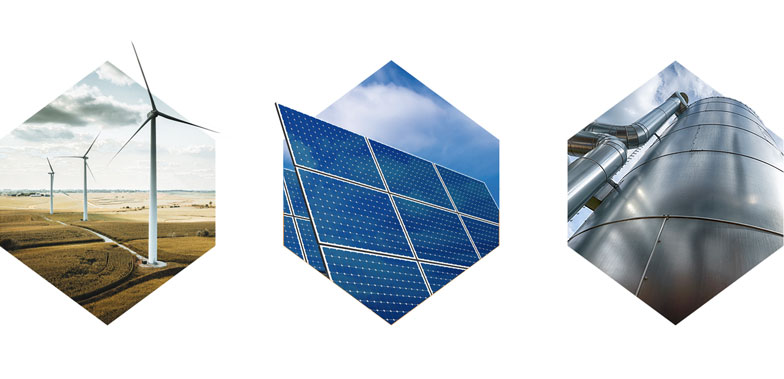Decarbonisation is the reduction of carbon dioxide emissions through the use of low carbon power sources, achieving a lower output of greenhouse gasses into the atmosphere.
‘Decarbonisation’ tends to refer to the process of reducing ‘carbon intensity’, lowering the amount of greenhouse gas emissions produced by the burning of fossil fuels. Generally, this involves decreasing CO2 output per unit of electricity generated. Reducing the amount of carbon dioxide occurring as a result of transport and power generation is essential to meet global temperature standards set by the Paris Agreement and UK government.

Decarbonisation involves increasing the prominence of low-carbon power generation, and a corresponding reduction in the use of fossil fuels. This involves in particular a use of renewable energy sources like wind power, solar power, and biomass. The use of carbon power can also be reduced through large-scale use of electric vehicles alongside ‘cleaner’ technologies. Decreasing carbon intensity in the power and transport sectors will allow for net zero emission targets to be met sooner and in line with government standards.
Efforts made to decarbonise have been put in place by various countries, with more than 150 governments having submitted plans to reduce carbon emissions by 2030. Changes made include Paris’ pledge to ban diesel vehicles from 2040, and TfL schemes to introduce electric and electric hybrid London buses and black cabs. Renewable energy sources are also being implemented more widely, and now produce a third of all power capacity worldwide. Greenhouse gas emissions from fossil fuel power stations can be capped by installing carbon capture and storage (CCS) technology, with around 20 large-scale CCS facilities currently in operation globally and more under construction.
Following the prioritisation of decarbonisation outlined in the Paris Agreement, the UK government committed to achieving net zero greenhouse gas emissions by 2050. After Parliament’s declaration of a climate emergency, the Committee on Climate Change recommended that achieving this net zero was not only feasible but also necessary and cost-effective. Rapid decarbonisation is becoming more necessary as the transport sector becomes electrified, increasing the demand for electric power. Greater energy efficiency is therefore becoming a priority to meet emission targets and improve air quality and global temperature.
More energy-efficient and less carbon-intense energy sources are some of the most prominent ways decarbonisation may be achieved. The global transport system is run primarily on carbon-based fuels such as diesel and petroleum, but electric vehicles becoming more widely-used would improve the contribution of the transport sector to reducing carbon emissions.
TWI is involved in this change, offering manufacturers support in joining challenging materials together, working on process improvement to optimise design, and helping to reduce costs to meet the challenges of welding and joining for electrification.
The UK’s independent Committee on Climate Change (CCC) has shown that the power sector could achieve emissions of 3 million tonnes of CO2 equivalent in 2050, compared to 98.3 million tonnes in 2018. With such changes being made, it is possible that the UK could become carbon-neutral through the process of decarbonisation.
Related Frequently Asked Questions (FAQs)